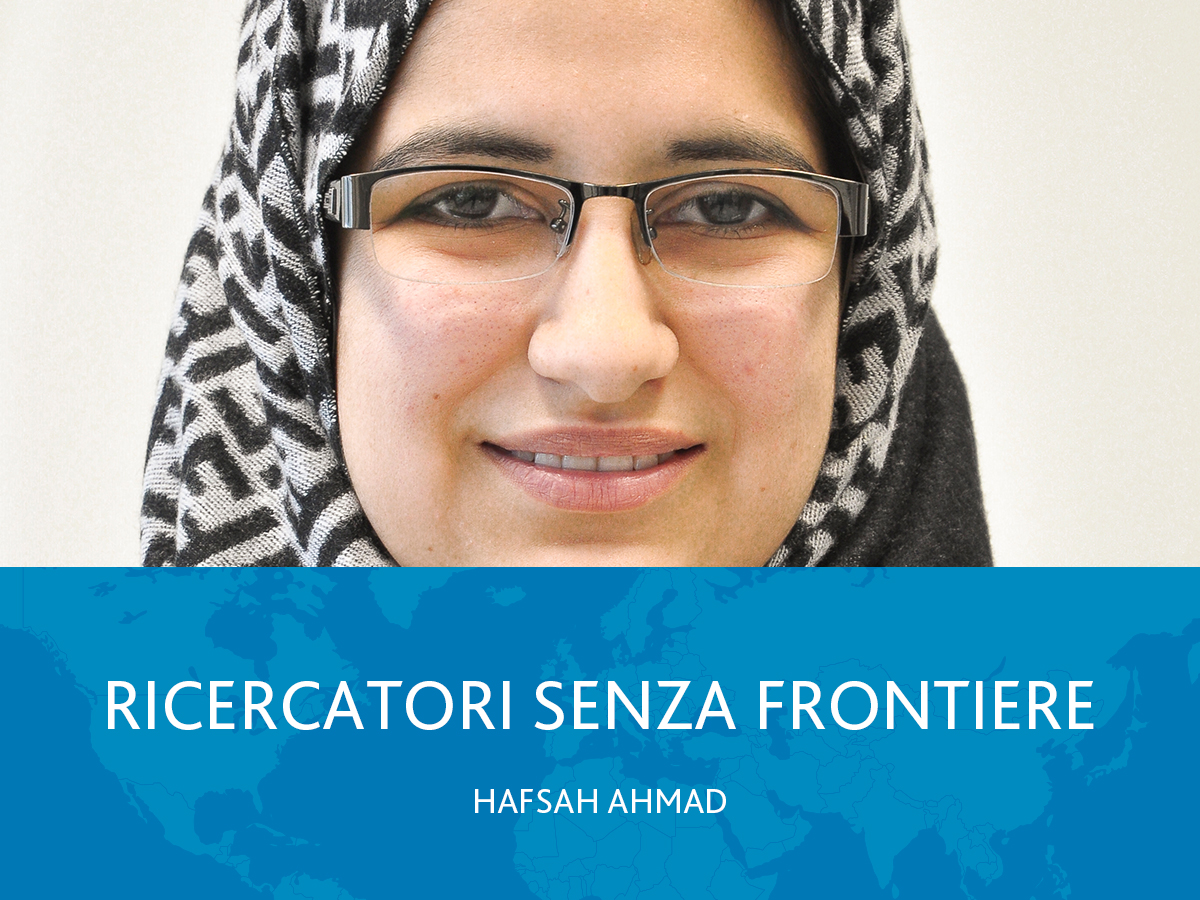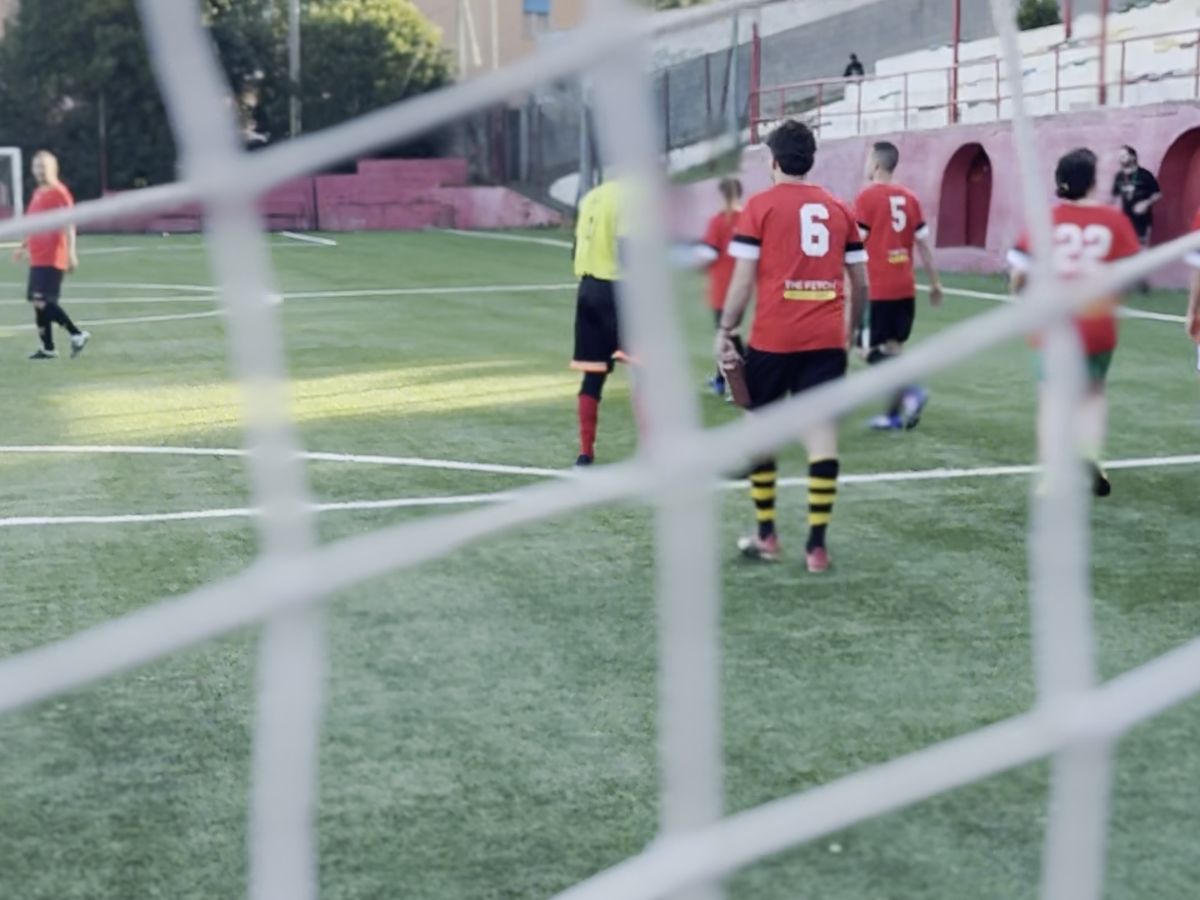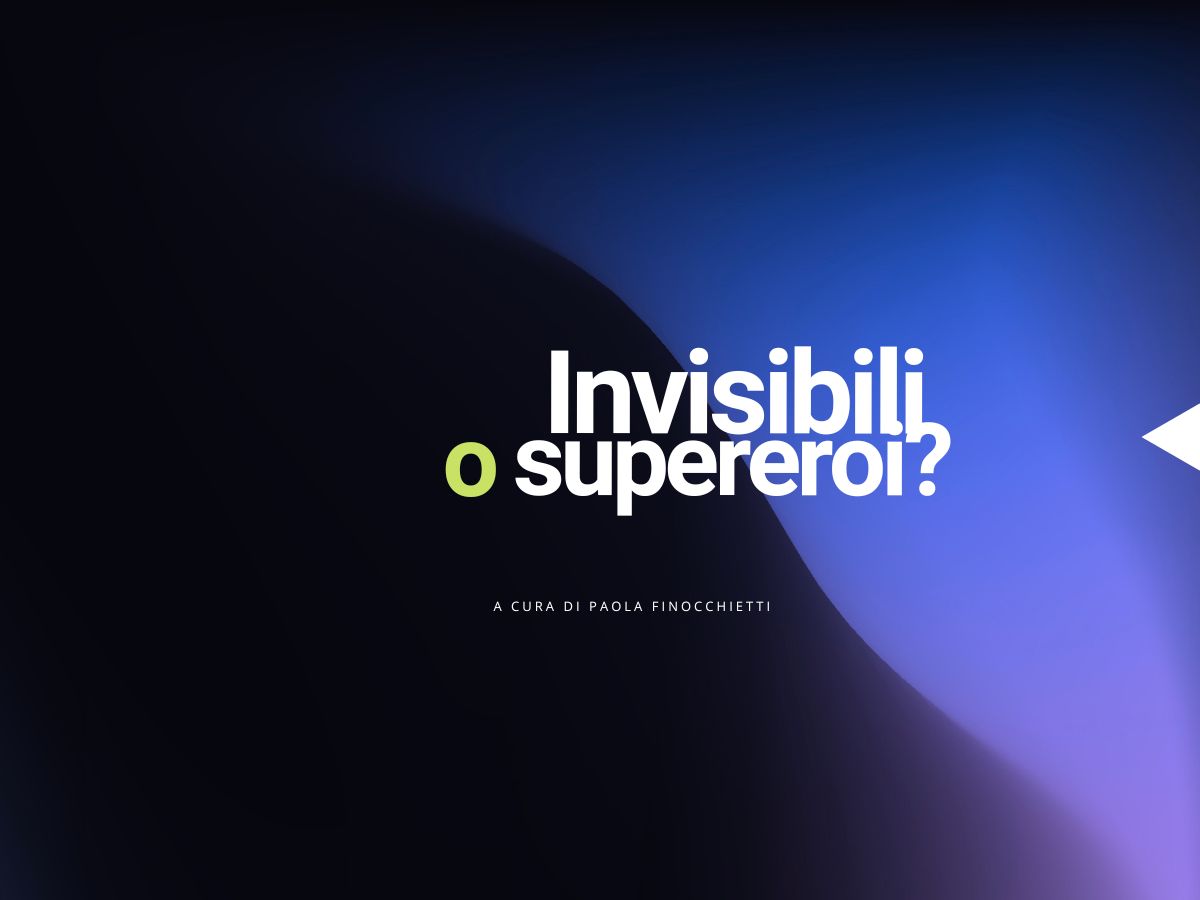Beyond all linguistic barriers, for the love of research
Twenty-nine years dedicated to help the ones affected by a hereditary eye disease, the macular degeneration (MD), a permanent damage with no treatment.
Hafsah is affected by this disease and this is how she chose Monica Gori team for her PhD programme, the “Unit for Visually Impaired People” of IIT.
The idea behind her PhD thesis was the development of rehab devices for people affected by MD and having a blind area in their visual field. Already dozens of instruments and devices are on the market in order to train patients to use their residual vision. A typical characteristic of Monica Gori’s team and what makes unique Hafsah work is the inclusion of other senses like touch and hearing, together with the residual vision. From these researches was developed the Audio Visual Thumble (AVT), a small device wearable like a ring. This ring is equipped with a led, a buzzer and two on/off switches: the patients can use the led for their training. In case they could not see it due to low vision, they would still have an audio and tactile feedback from the device therefore a multisensory integration for rehabilitation.
Hafsah was born in Northern Pakistan, she wears her veil as her “identity and pride” and she has a degree in Biomedical Engineer at the National University of Science and Technology in Islamabad.
What are the reasons for your decision of helping people with your same disease? What was the hardest part of this journey?
I am a biomedical engineer specialized in Neural Engineering, when I read about Monica Gori’s project of multisensory integration, I immediately wrote to her and told her it was perfectly matching with my previous academic experience and that my dream was helping people affected by macular degeneration.
To witness the total loss of sight in several young people and not be able to fight this degeneration was painful. I was really afraid when I first started but Monica was great in leading me and she gave me the opportunity to collaborate with patients from Istituto Chiossone in Genoa. I worked in such a positive environment these years that thinking now about my past time worries makes me smile.
Was the language a hard obstacle to overcome working with elders, since you do not speak Italian and they do not speak English? And what was the best part in so?
Yes, it was. I worked mostly with elders and it was complicated at the beginning because of the linguistic barrier. My teammates helped me the whole time and also doctors and rehabilitations staff members supported me. Everyone was very nice. Despite the linguistic barrier, patients tried to make themselves understood in any way. At the end of the collaboration they would even ask about my hijab, how many of them do I have and how beautiful they were!
I also had fun, I enjoyed watching them while they were testing the device I was developing, they were like kids with a toy! I think this was the best thing about my experience!
Hafsah was raised in Islamabad, but she was born in Northern Pakistan, in a village she and her family are very attached to, called Dagai, Swabi. A small town of approximately 16.000 people, “who still have a pure soul, non-polluted by technology and appreciate humanity and religion, with 90% of educated residents”. She claims the freedom of women in Pakistan and their role in society despite what is told about the North of her country.
Can you tell me a typical dish of Dagai and an Italian one you like?
Pizza, pansoti and tiramisù! Also focaccia!
I love simple and fresh food of Pakistan. I love everything, but I could never resist some “Tandoor ki roti o bhindi”, freshly baked bread and ladyfingers with lemon!
Regarding you three years here in Italy, tell me about your team and IIT.
The “UVIPers”, as I call them, are precious! I was the only foreigner in the team and they helped me in any circumstances. Starting from ordering food at a restaurant by translating the whole menu, to answering personal phone calls for deliveries or calling a cab late at night to go home. I could not be more thankful to all of them.
IIT gave me the opportunity to obtain high-level international visibility. I really appreciated its cosmopolitan environment and the bonding with some of my colleagues like Luigi, Walter, Elena, Chiara and Maria Bianca, to name a few.
She dreams about her return in Pakistan, because that is the only country where she actually feels at home, her “Home Sweet Home”. But first she would like to experience another European country, at the end of her PhD.
Most of all, she dreams of making a real change in people affected by macular degeneration lives. Even a small one. Because even a small change can significantly improve the quality of life.





